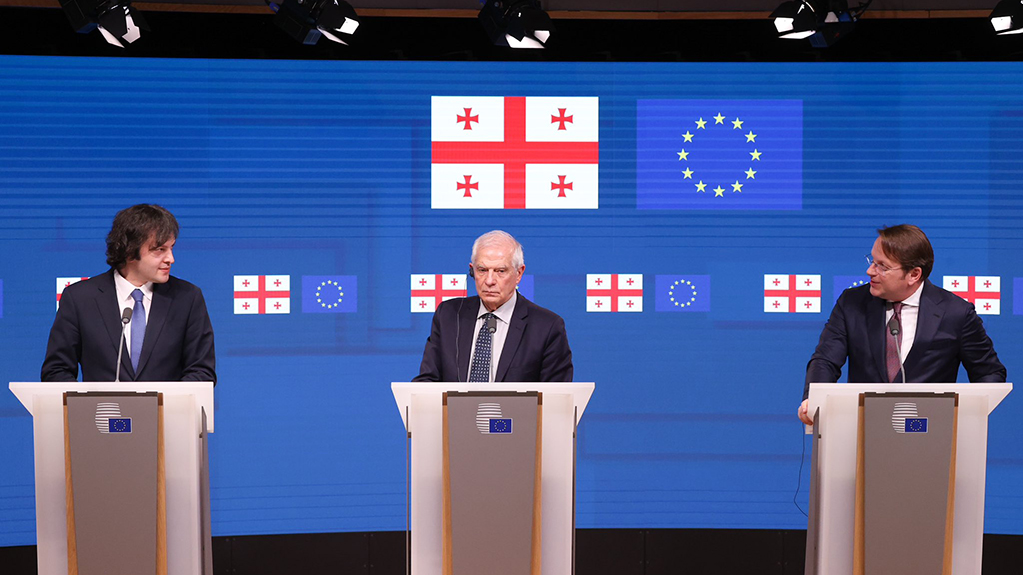EU High Representative for Foreign Affairs and Security Policy, Josep Borrell, and Commissioner for Neighborhood Policy and Enlargement, Oliver Varhelyi, react to the first reading of the Russian law. The law does not correspond to the basic norms and values of the European Union, they said.
News
"Today, the Parliament of Georgia adopted the law "On transparency of foreign influence" in the first reading, despite numerous calls from the European Union to reject such legislation and despite mass protests.
“Today, the Georgian Parliament passed the "transparency of foreign influence" law in its first reading, despite repeated calls by the European Union to retract such legislation, and despite the mass protests.
This is a very concerning development and the final adoption of this legislation would negatively impact Georgia’s progress on its EU path. This law is not in line with EU core norms and values.
Georgia has a vibrant civil society that contributes to the country’s successful progress towards EU membership. The proposed legislation would limit the capacity of civil society and media organisations to operate freely, could limit freedom of expression and unfairly stigmatise organisations that deliver benefits to the citizens of Georgia.
The EU urges Georgia to refrain from adopting legislation that can compromise Georgia’s EU path, a path supported by the overwhelming majority of Georgian citizens,” the joint statement said.
Yesterday, the President of the European Council, Charles Michel, also responded to the Russian law. He stated that the Georgian people chose the European path, and in response, Georgia received the status of a candidate. He emphasized that the draft law on "transparency of foreign influence" does not correspond to the country's European aspirations. Instead, it separates Georgia from the European Union.
Georgian Dream had passed a similar bill in the first reading last year, in March, but people's protests forced it to be rejected. Party leaders vowed to withdraw the bill "unconditionally, without any reservations." However, a year later, in early April, they reintroduced it. The text of the draft law remained the same - only replacing "agent of foreign influence" with the term "organization carrying out the interests of a foreign power." The draft law's purpose is to restrict independent media and civil society. Despite potential harm to Georgia's European integration process, the ruling party intends to pass it in all three readings before the end of the spring session.















